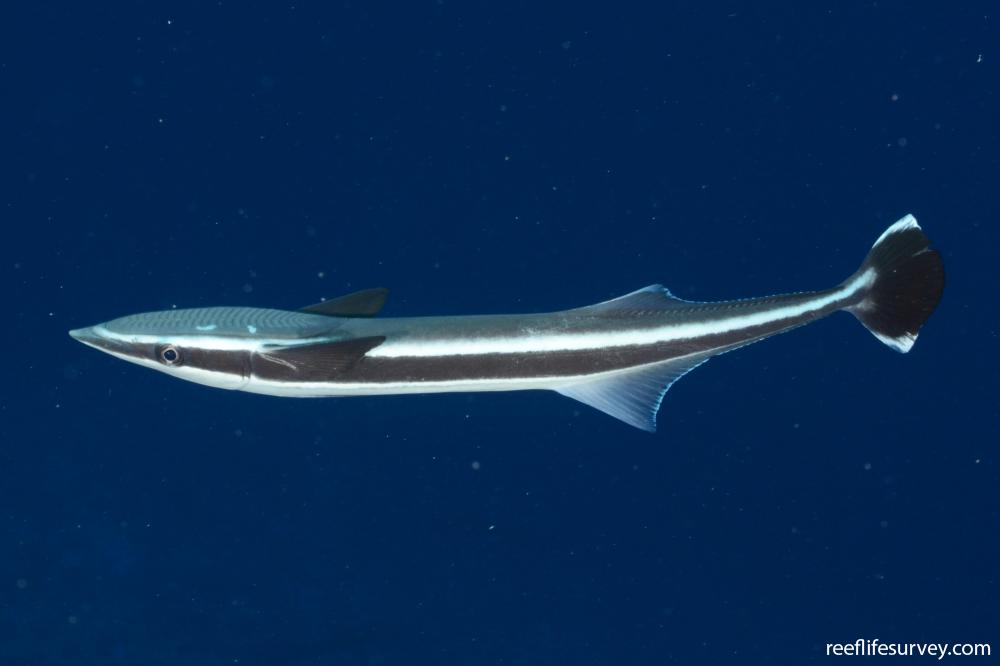Echeneis naucrates
Sharksucker | Australian Remora | Gapu | Live Sharksucker | Remora | Shark Remora | Slender Sharksucker | Slender Suckerfish | Striped Suckerfish | Suckerfish | White Tailed RemoraSame Genus
Distribution
Temperate Australasia, Temperate northern Atlantic, Tropical Atlantic/Caribbean, Tropical Eastern Pacific, Tropical Indo-Pacific
Description
Flattened head with broad sucking disc on top, wide black stripe central along body with light bluish-white stripes either side, tailfin black with white margin, dorsal and anal fins similar in profile, arranged symmetrically midway along body. Follows and attaches to larger mobile fishes such as mantas and sharks, will also occasionally try to attach to divers. Difficult to distinguish from closely related Echeneis neucratoides (Whitefin Sharksucker) which occurs only in the western central Atlantic. More slender body than Rachycentron canadum (Cobia), which also lacks suction plate. Length to 110 cm. Used as a fishing aid in some parts of the world. A line is tied around the tail of the sharksucker and it is then released back into the water to attach itself to a host. The host and shark sucker are then pulled in by the fisherman.
Information
Max Size: 110 cm
Sea Temperature Range: 19.5-31.2°C
Depth: 1-85m
Habitat Generalization Index: 7.22
Also referred to as the SGI (Species Generalisation Index), this describes the habitat niche breadth of the species. Species with values less than 15 are found in a relatively narrow range of reef habitat types (specialists), while those over 25 may be found on most hard substrates within their range (generalists). Learn more here.
Conservation and Rarity
IUCN Status: Not Evaluated
Occurrence: Infrequent (4.5% of sites)
Occurrence describes how often the species is found on surveys within its distribution. It is calculated as the % of reef sites surveyed by RLS divers across all the ecoregions in which the species has been observed
Abundance: Few (2 per transect)
Abundance is calculated as the average number of individuals recorded per RLS transect, where present.
Edit by: RD Stuart-Smith, GJ Edgar, AJ Green, IV Shaw. 2015. Tropical Marine Fishes of Australia. Reed New Holland






